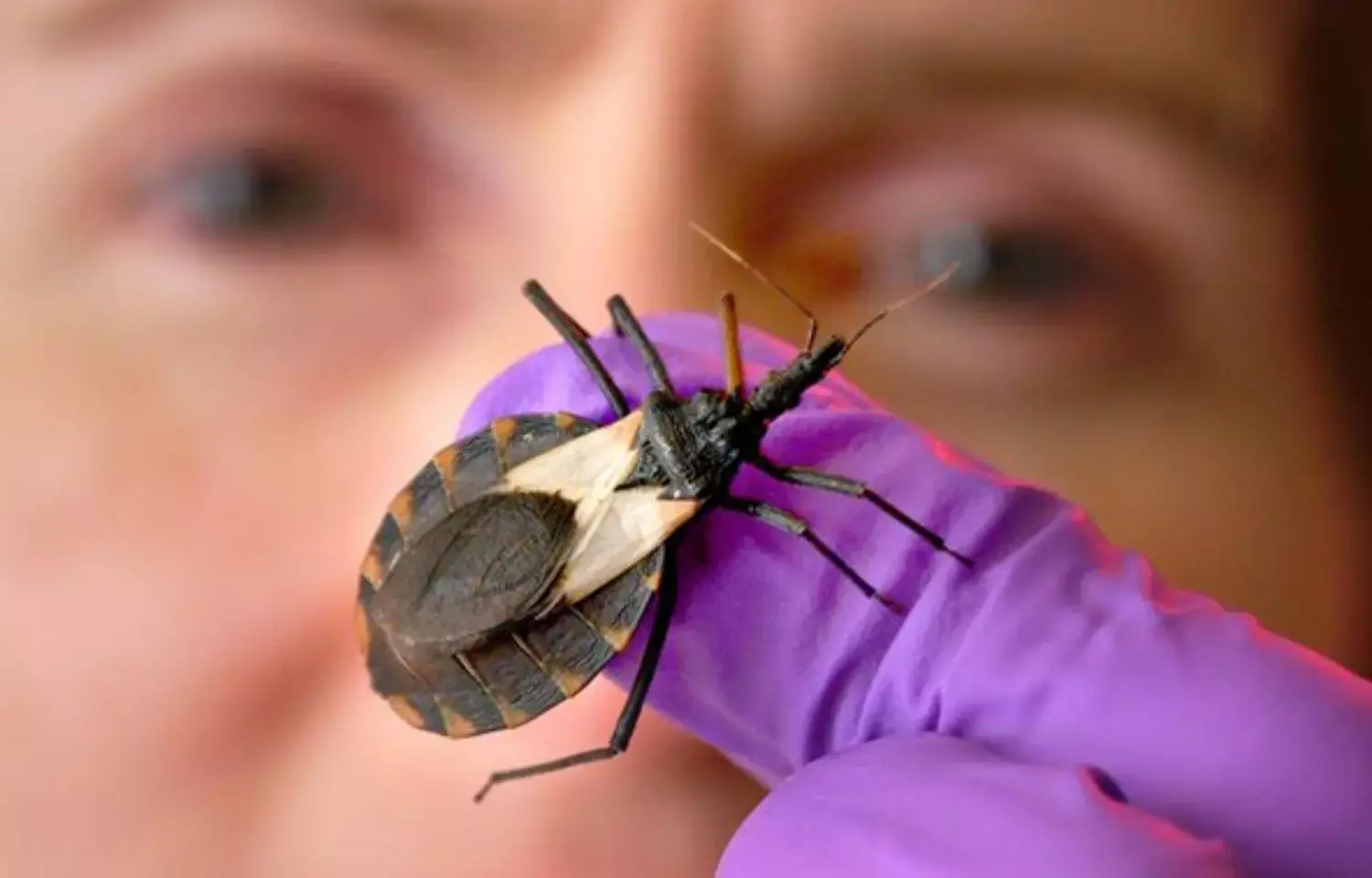- Home
- Medical news & Guidelines
- Anesthesiology
- Cardiology and CTVS
- Critical Care
- Dentistry
- Dermatology
- Diabetes and Endocrinology
- ENT
- Gastroenterology
- Medicine
- Nephrology
- Neurology
- Obstretics-Gynaecology
- Oncology
- Ophthalmology
- Orthopaedics
- Pediatrics-Neonatology
- Psychiatry
- Pulmonology
- Radiology
- Surgery
- Urology
- Laboratory Medicine
- Diet
- Nursing
- Paramedical
- Physiotherapy
- Health news
- Fact Check
- Bone Health Fact Check
- Brain Health Fact Check
- Cancer Related Fact Check
- Child Care Fact Check
- Dental and oral health fact check
- Diabetes and metabolic health fact check
- Diet and Nutrition Fact Check
- Eye and ENT Care Fact Check
- Fitness fact check
- Gut health fact check
- Heart health fact check
- Kidney health fact check
- Medical education fact check
- Men's health fact check
- Respiratory fact check
- Skin and hair care fact check
- Vaccine and Immunization fact check
- Women's health fact check
- AYUSH
- State News
- Andaman and Nicobar Islands
- Andhra Pradesh
- Arunachal Pradesh
- Assam
- Bihar
- Chandigarh
- Chattisgarh
- Dadra and Nagar Haveli
- Daman and Diu
- Delhi
- Goa
- Gujarat
- Haryana
- Himachal Pradesh
- Jammu & Kashmir
- Jharkhand
- Karnataka
- Kerala
- Ladakh
- Lakshadweep
- Madhya Pradesh
- Maharashtra
- Manipur
- Meghalaya
- Mizoram
- Nagaland
- Odisha
- Puducherry
- Punjab
- Rajasthan
- Sikkim
- Tamil Nadu
- Telangana
- Tripura
- Uttar Pradesh
- Uttrakhand
- West Bengal
- Medical Education
- Industry
Innovative test may help diagnose chagas disease in newborns: Study

An innovative test that combines a DNA extraction system inspired by a modified 3D printer (PrintrLab) with loop-mediated isothermal molecular amplification (LAMP) could be used to detect T. cruzi infection -responsible for Chagas disease-in newborns.
This is the conclusion of a proof-of-concept study conducted in the Bolivian Chaco, an endemic area for Chagas disease. The study was coordinated by the Barcelona Institute for Global Health (ISGlobal), a centre supported by "la Caixa" Foundation, in collaboration with the CEADES Foundation (Bolivia), CONICET-INGEBI (Argentina), AI Biosciences (USA), FIND (Switzerland) and the Mundo Sano Foundation (Argentina).
An innovative test that combines a DNA extraction system inspired by a modified 3D printer (PrintrLab) with loop-mediated isothermal molecular amplification (LAMP) could be used to detect T. cruzi infection -responsible for Chagas disease- in newborns. This is the conclusion of a proof-of-concept study conducted in the Bolivian Chaco, an endemic area for Chagas disease. The study was coordinated by the Barcelona Institute for Global Health (ISGlobal), a centre supported by "la Caixa" Foundation, in collaboration with the CEADES Foundation (Bolivia), CONICET-INGEBI (Argentina), AI Biosciences (USA), FIND (Switzerland) and the Mundo Sano Foundation (Argentina).
Twenty percent of new cases of Chagas disease are due to vertical (or congenital) transmission. This occurs when an infected mother passes the parasite to her baby during pregnancy. Early detection of the parasite in women and newborns is therefore a public health priority. The problem is the lack of simple, rapid and reliable tests.
In high-income countries like Spain, newborn diagnosis can be done by PCR, but this is an expensive method that requires skilled personnel. In endemic regions, up to two microscopy tests are performed (at birth and at two months), which have low sensitivity and must be followed several months later by a serological test to detect antibodies to the parasite. The number of tests and the time lag between them increases the risk that children will not receive the treatment they need.
"In endemic regions, it would be very useful to have a simple, rapid and sensitive test to detect the parasite in newborns, when treatment is most effective," explains Julio Alonso Padilla, researcher at ISGlobal.
More sensitive than microscopy
In this study, a team led by Alonso-Padilla evaluated an innovative diagnostic test that combines a simple molecular amplification technique (LAMP) developed by the Japanese company Eiken, with a 3D printer modified to extract DNA from a small blood sample (PrintrLab). The results were compared with those of PCR and the "standard" diagnostic methods (microscopy and serology).
The study included 224 infants born to T. cruzi seropositive mothers and followed for eight months. A total of 23 cases of congenital transmission were detected (nine by microscopy at birth and a further 14 by serology eight months later). LAMP was able to detect 13 of the 23 cases early on (i.e. four additional cases to those detected by microscopy), and PCR was able to detect 14 of the 23 (five additional cases).
"This shows that the sensitivity of PrintrLab-LAMP is higher than that of microscopy and almost equal to that of PCR," says Alonso-Padilla. The advantage is that PrintrLab should be cheaper than PCR and requires minimal infrastructure.
Following the country’s guidelines for diagnosis and treatment of congenital Chagas disease, all infected newborns were treated and cured, highlighting the importance of early detection and treatment.
The research team points out that this was a proof of concept to demonstrate the feasibility of the PrintrLab-LAMP test, and that it now needs to be tested on a larger scale and in a larger number of centres. If its potential is confirmed, the test could also be useful for detecting acute infections in adults, or assessing the effectiveness of treatment.
Reference
Rojas L, Rivera S, Wehrendt DP et al. Evaluation and validation of a PrintrLab-based LAMP assay to identify Trypanosoma cruzi in newborns in Bolivia: a proof of concept study. Lancet Microbe, doi: 10.1016/S2666-5347(24)00110-1.
Dr Kamal Kant Kohli-MBBS, DTCD- a chest specialist with more than 30 years of practice and a flair for writing clinical articles, Dr Kamal Kant Kohli joined Medical Dialogues as a Chief Editor of Medical News. Besides writing articles, as an editor, he proofreads and verifies all the medical content published on Medical Dialogues including those coming from journals, studies,medical conferences,guidelines etc. Email: drkohli@medicaldialogues.in. Contact no. 011-43720751


